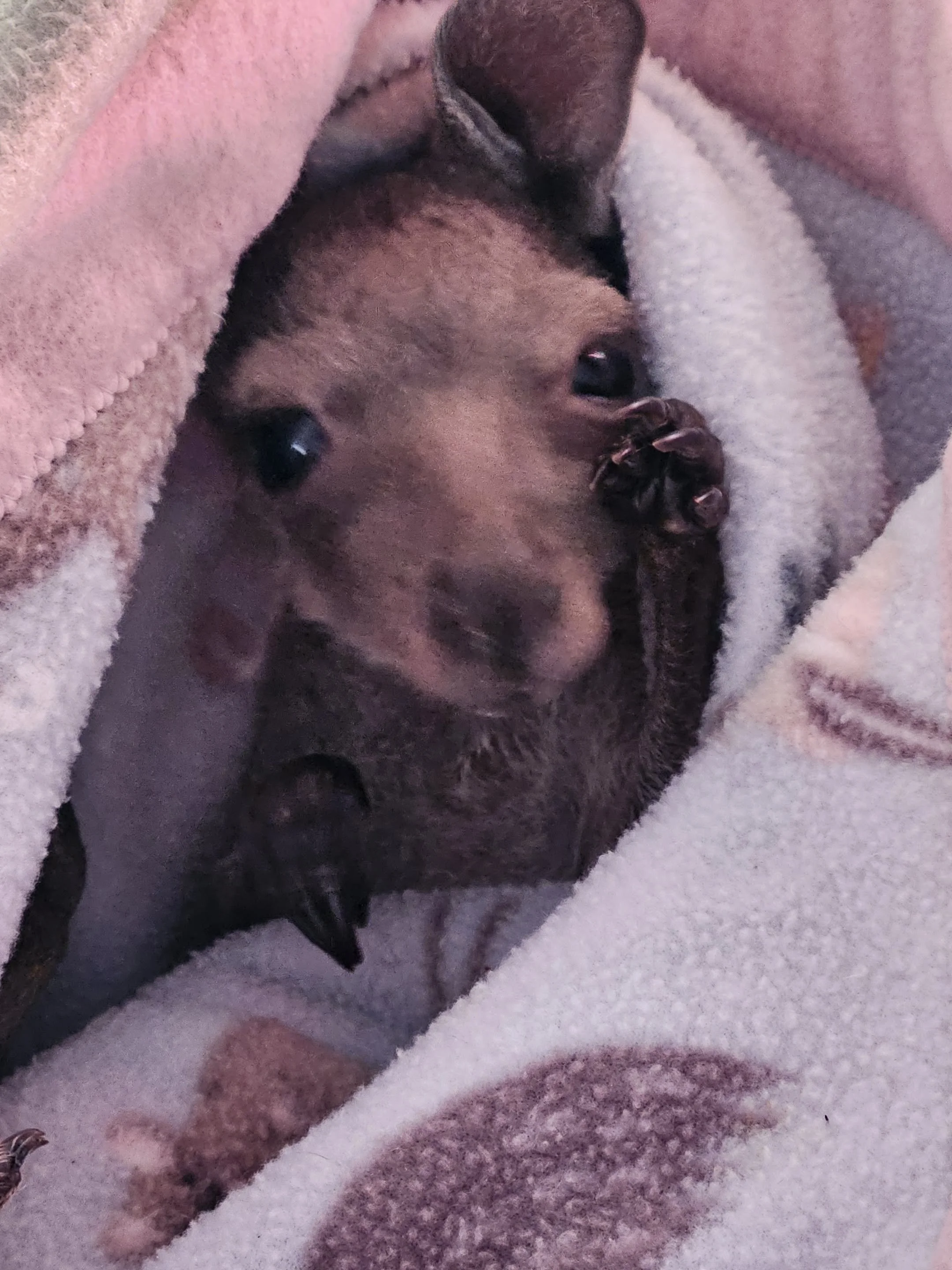Don’t ask Google
“I Found a Joey—Now What?” Why Google Isn’t the Answer
It starts with good intentions.
“I’ve found a joey. Oh, it’s so cute! I think I’ll raise it myself.” Then comes the next step: “Let’s ask Google.”
And that’s where things can go heartbreakingly wrong.
What Google Might Tell You (and Why It’s Dangerous)
“Go to a stock feed outlet and buy kangaroo milk replacer.” If it’s got a kangaroo on the label, it must be fine, right? Wrong. Joeys need species- and age-specific formula—not generic blends. A 400g joey needs different nutrients than a 700g one. The wrong milk can cause gut damage, malnutrition, and death.
“Keep it warm and quiet.” Sounds simple. But this doesn’t mean putting it in a spare room and forgetting about it. It means pouching, monitoring temperature, hydrating, and checking for signs of shock or injury. Joeys need to feel the rhythm of a heartbeat, the curve of a pouch, and the presence of care.
“It’s hopping, so it must be fine.” Joeys can hop with broken bones, internal injuries, and excruciating pain. They mask distress instinctively. What looks okay may be life-threatening.
What Google Doesn’t Tell You
That joeys are prey animals, hardwired to hide pain and fear.
That fractures can go unnoticed for weeks, causing irreversible damage.
That hydration protocols, pouching technique, and formula ratios are critical and change with every gram of growth.
That raising a joey is expensive—milk formula, pouches, medications, splints, heat pads, and more.
That vets don’t treat wildlife for free. Carers pay out-of-pocket or rely on donations to cover costs.
That wildlife carers undergo training, mentorship, and constant learning to get it right.
That raising a joey isn’t cute—it’s clinical, complex, and emotionally demanding.
That doing your best isn’t enough without the right knowledge and support.
In the past two weeks, we’ve seen the tragic consequences of misinformation.
Lucy, a young joey, spent weeks in agony before reaching a trained wildlife carer. Thanks to proper intervention, she’s now recovering well.
But another little one, just 1.4 kg, arrived with four fractures—injuries sustained while someone tried to do their best, guided only by Google. Despite every effort by his new carer, including getting him out of the situation he was in, he didn’t make it.
RIP, precious baby. You mattered. You were loved. And you deserved better from the start.
So next time you find a joey—pause. Instead of asking Google, ask a wildlife carer.
We’re here. We’re trained. And we’ll help you do what’s truly best.

